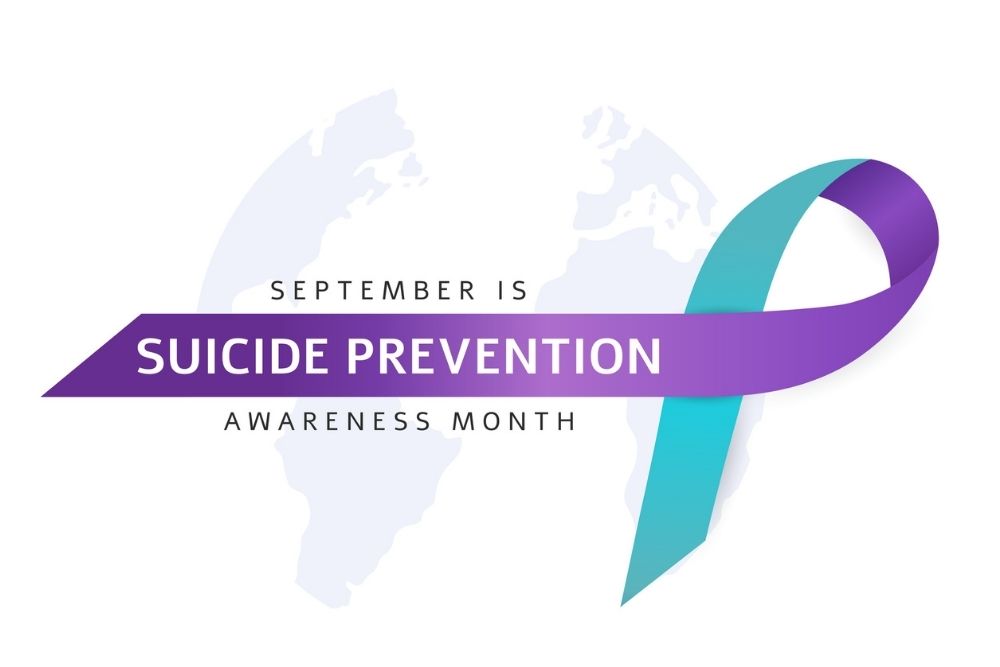Suicide is a difficult topic to think about and even more challenging to talk about for most people, but talking about it is one of the keys to preventing suicides. Every year, 11 minutes, a person in the United States ends their own life. September is National Suicide Prevention Month, and at Palms Behavioral Health in Harlingen, Texas, we want you to have the tools to help your family and friends who may be experiencing suicidal thoughts.
Suicide Prevention Month Goals
During September, organizations like the National Alliance for Mental Illness (NAMI), the Substance Abuse and Mental Health Services Alliance (SAMHSA), and the National Suicide and Crisis Lifeline increase efforts to:
- Raise awareness among the general population
- Spread hope for people who are struggling
- Ignite large-scale action to address suicide
What You Can Do to Prevent Suicide
You can save lives:
- Using your social media to share information about supports that exist to help people in crisis, such as 988 (The National Suicide and Crisis Lifeline), NAMI, and national and local mental health programs.
- Advocating for increased mental health funding by reaching out to your elected officials
- Talking to people you love about mental health and suicide
Recognizing Risk Factors
Anyone can experience suicidal thoughts, but certain things can place a person at increased risk for considering and attempting suicide:
- Mental health diagnoses, especially mood disorders
- Impulsive or aggressive tendencies
- Chronic or painful health problems
- Personal or family history of suicide attempts
- Loss of employment, housing, or an important relationship
- Access to a means of killing themselves
- Clusters of suicide nearby
- Isolation and loneliness
- Feeling unable to ask for or receive help
- Women are more likely to attempt suicide, but men are more likely to die from suicide, mostly because men are more likely to use a gun in a suicide attempt
Spotting Red Flags
Recognizing that someone is at increased risk may also help you to spot indications that they could be contemplating ending their life. On the surface, some of these signs can look like indications that the person’s mental health is improving or they are getting their life together after a period of distress, but they could actually signal that the person has solidified a plan for killing themselves:
- Sudden improvement in mood
- Wrapping up loose ends by paying off debts, buying or reviewing life insurance policies, writing a will, giving away cherished possessions, or saying goodbye to family and friends like they will never see them again
- Increased substance use in the days, weeks, and months leading up to suicide. Many people who are suicidal will also drink alcohol immediately before an attempt, to lower their inhibitions, so they can follow through with a suicide plan
- Withdrawing from friends, family, colleagues, or the community
- Mood swings
- Gathering the items they would use to end their life, such as a gun and ammo, pills, sharp objects, ropes, etc.
- Self-harm
- Writing, talking, or posting (even making jokes) about death, suicide, wanting to die, feeling people would be better off without them, feeling hopeless or worthless, or feeling trapped or stuck
Starting a Conversation About Suicide
If someone in your life is exhibiting the signs above, it’s important to talk to them right away. Many people who have lost a loved one to suicide have been afraid to ask their friend or family member about suicide, in case it would give the person the idea to kill themselves, or convince themselves that their loved one would never kill themselves, despite the signs being present. Suicide is an uncomfortable thing to talk about, but having a conversation is the best way to make sure that the people in your life get help if they need it. Here are some things you can say/ask/do:
- “You have been going through a lot, and I am worried about you. Sometimes people who experience such painful things think about ending their lives.”
- “Have you had any thoughts about killing yourself?”
- “Have you made a plan for how you would end your life?”
- Be patient and let them talk.
- Offer to help them call their doctor or therapist.
- Don’t make threats or raise your voice.
- Help them make a plan for how they can stay safe.
- Don’t call them selfish or tell them suicide is immoral.
- Don’t leave them alone.
- Remove objects they could use to hurt themselves, like pills, sharp objects, or guns.
- Help them reach out to the National Suicide and Crisis Lifeline by calling or texting 988.
- If they cannot make a plan to stay safe, call 911 or take them to the nearest emergency room.
- After the immediate threat is over, follow up with them to make sure they are okay and help them stay connected with you and others in their support system.
At Palms Behavioral Health, we provide assessment, diagnosis, and intensive treatment for acute psychiatric issues. We treat a range of behavioral health disorders, including suicidal ideation. If you or someone you love is considering suicide, we want you to know that there is hope and help. Recovery is possible.






